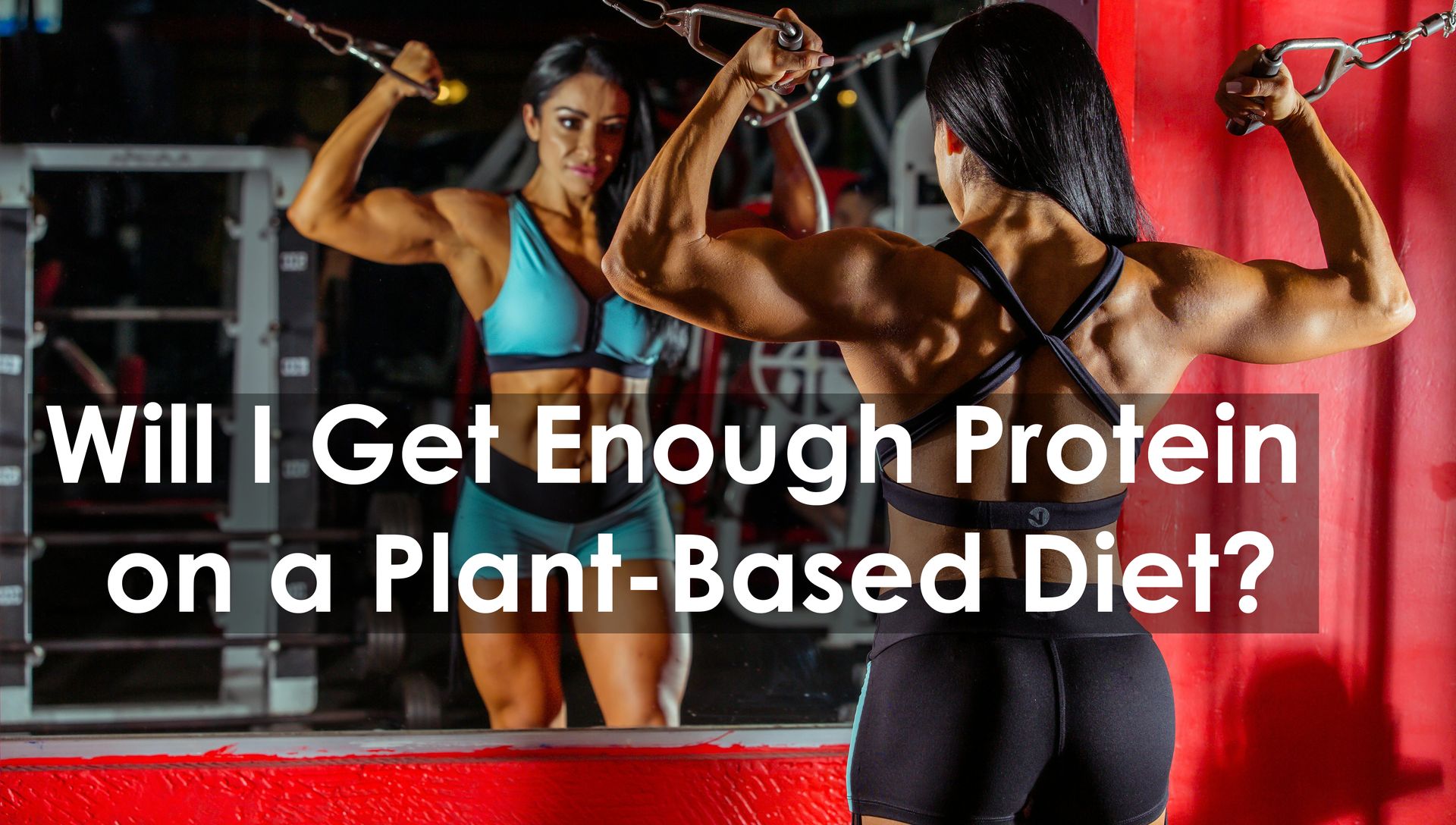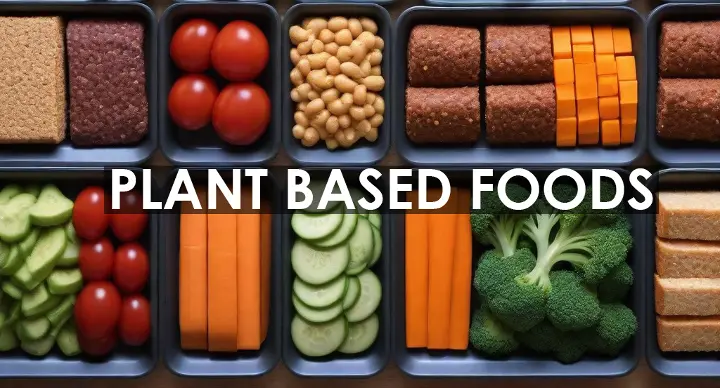A Guide to Fueling Your Body with Nature's Bounty
The vibrant world of plant-based foods offers a delicious and nutritious way to nourish your body. But what exactly does "plant-based" mean, and why should you consider incorporating more of these foods into your diet?
What are Plant-Based Foods?
Plant-based foods encompass all the incredible edibles that come from the plant kingdom. This includes:
- Fruits: Packed with vitamins, minerals, and antioxidants, fruits offer a naturally sweet way to satisfy your cravings.
- Vegetables: From leafy greens brimming with essential nutrients to root vegetables rich in fiber, vegetables are the powerhouses of the plant world.
- Nuts and Seeds: These tiny nutritional powerhouses provide healthy fats, protein, and essential minerals.
- Legumes: Beans, lentils, peas, and chickpeas are excellent sources of plant-based protein and fiber, making them a filling and satisfying addition to meals.
- Whole Grains: Brown rice, quinoa, oats, and other whole grains offer sustained energy, complex carbohydrates, and fiber.
Why Go Plant-Based?

Plant-based foods offer a multitude of benefits for your body:
- Nutrient Rich: Plants are loaded with essential vitamins, minerals, and antioxidants that support overall health and well-being.
- Fiber Powerhouse: Plant-based foods are naturally high in fiber, which aids digestion, promotes gut health, and helps you feel fuller for longer.
- Heart-Healthy Benefits: Studies suggest plant-based diets can lower blood pressure, cholesterol levels, and the risk of heart disease.
- Weight Management: Plant-based foods are generally lower in calories and fat than animal products, making them a valuable tool for maintaining a healthy weight.
- Reduced Risk of Chronic Disease: Research indicates plant-based diets may help reduce the risk of type 2 diabetes, certain cancers, and other chronic illnesses.
- Environmental Impact: Opting for plant-based meals can have a positive impact on the environment, reducing your carbon footprint and water usage associated with animal agriculture.
Best Time to Eat Plant-Based Foods?
The beauty of plant-based foods is their versatility! You can enjoy them throughout the day:
- Start your day right: Whip up a smoothie packed with fruits, vegetables, and nuts for a refreshing and energizing breakfast.
- Power through lunch: Opt for a salad with whole grains, legumes, and a variety of colorful vegetables.
- Light and satisfying dinner: Enjoy a plant-based stir-fry with tofu or tempeh, roasted vegetables, and brown rice for a balanced and delicious meal.
- Healthy Snacking: Snack on fruits, nuts, seeds, or veggie sticks with hummus for a satisfying and nutritious pick-me-up.
A World of Plant-Based Options:

The plant-based world is bursting with flavor and variety. Here are just a few ideas to get you started:
- Fruits: Explore a rainbow of options – berries, citrus fruits, apples, bananas, melons, and tropical fruits offer a spectrum of vitamins, minerals, and sweetness.
- Vegetables: Get creative! Leafy greens, broccoli, cauliflower, asparagus, bell peppers, mushrooms, eggplant, and root vegetables like carrots and potatoes provide endless possibilities.
- Nuts and Seeds: Almonds, walnuts, cashews, flaxseeds, chia seeds, and pumpkin seeds are a delicious way to add healthy fats, protein, and crunch to your meals.
- Legumes: Explore the diverse world of beans – black beans, pinto beans, kidney beans, chickpeas, lentils, and peas offer a variety of textures and flavors.
- Whole Grains: Brown rice, quinoa, oats, barley, and whole-wheat bread provide sustained energy and essential nutrients.
Plant-Based Powerhouse Examples:
Here are some inspiring meal ideas to get you embracing plant-based power:
- Breakfast: Overnight oats with berries and nuts, avocado toast with a sprinkle of hemp seeds.
- Lunch: A vibrant salad with quinoa, chickpeas, roasted vegetables, and a tahini dressing.
- Dinner: Lentil soup with whole-wheat bread, a veggie burger on a whole-wheat bun with sweet potato fries.
- Snacks: Apple slices with almond butter, a trail mix of nuts and seeds, hummus with veggie sticks.
Remember, embracing a plant-based lifestyle doesn't mean complete exclusion of animal products. It's about incorporating more plant-based options into your diet for a healthier, more vibrant you! Start small, explore new plant-based recipes, and discover the delicious world of fueling your body with nature's bounty.
QUESTION AND ANSWER
Top 10 Plant-Based Food Questions from customers
Why Should I Consider Plant-Based Foods?

There are many reasons to explore plant-based foods! Here are a few key benefits:
- Nutrient Powerhouse: Plants are packed with essential vitamins, minerals, and antioxidants that support your overall health and well-being.
- Fiber Fiesta: Plant-based foods are naturally high in fiber, aiding digestion, promoting gut health, and keeping you feeling fuller for longer.
- Heart-Healthy Hero: Studies suggest plant-based diets can lower blood pressure, cholesterol levels, and the risk of heart disease.
- Weight Management Ally: Plant-based foods are generally lower in calories and fat than animal products, making them a valuable tool for maintaining a healthy weight.
- Reduced Chronic Disease Risk: Research indicates plant-based diets may help reduce the risk of type 2 diabetes, certain cancers, and other chronic illnesses.
- Environmental Champion: Opting for plant-based meals can positively impact the environment by reducing your carbon footprint and water usage associated with animal agriculture.
Are Plant-Based Foods Boring?
Absolutely not! The plant-based world is bursting with flavor and variety. From sweet and juicy fruits to vibrant and delicious vegetables, there's something for every taste bud. Nuts and seeds add a delightful crunch, while legumes like beans and lentils offer a satisfying protein punch. Whole grains provide a comforting base for your meals.
Examples of Plant-Based Foods?
Get ready for a flavor explosion! Here are some examples:
- Fruits: Explore a rainbow of options – berries, citrus fruits, apples, bananas, melons, and tropical fruits offer a spectrum of vitamins, minerals, and sweetness.
- Vegetables: Get creative! Leafy greens, broccoli, cauliflower, asparagus, bell peppers, mushrooms, eggplant, and root vegetables like carrots and potatoes provide endless possibilities.
- Nuts and Seeds: Almonds, walnuts, cashews, flaxseeds, chia seeds, and pumpkin seeds are a delicious way to add healthy fats, protein, and crunch to your meals.
- Legumes: Explore the diverse world of beans – black beans, pinto beans, kidney beans, chickpeas, lentils, and peas offer a variety of textures and flavors.
- Whole Grains: Brown rice, quinoa, oats, barley, and whole-wheat bread provide sustained energy and essential nutrients.
How Can I Find Plant-Based Foods?
The good news is, plant-based options are becoming increasingly available! Most grocery stores offer a wide variety of fruits, vegetables, legumes, and whole grains. Many stores also have dedicated sections for plant-based alternatives – from dairy-free milk and cheese to meatless burger patties.
Will I Get Enough Protein on a Plant-Based Diet?

Absolutely! Contrary to popular belief, plant-based foods can provide all the essential protein your body needs. Here are some excellent protein sources in the plant kingdom:
- Legumes: Beans, lentils, and peas are protein powerhouses.
- Tofu and Tempeh: These soy-based products are versatile and protein-rich.
- Nuts and Seeds: Almonds, walnuts, and hemp seeds are a great source of protein and healthy fats.
- Whole Grains: Quinoa and certain whole grains like oats contribute to your daily protein intake.
What About Calcium on a Plant-Based Diet?
Calcium is crucial for bone health. Here are some excellent plant-based options rich in calcium:
- Leafy Greens: Kale, collard greens, and turnip greens are packed with calcium.
- Fortified Plant-Based Milks: Many soy, almond, and oat milks are fortified with calcium.
- Tofu: Calcium-set tofu is a good source of this vital mineral.
- Certain Fruits and Vegetables: Figs, oranges, and broccoli also contribute to your daily calcium intake.
How Do I Get Started with Plant-Based Eating?
Start small! You don't have to go all-in overnight. Here are some tips:
- Meatless Mondays: Begin by incorporating one plant-based meal a week, like a hearty lentil soup or a veggie stir-fry.
- Explore Plant-Based Recipes: Find delicious and easy recipes online or in cookbooks to inspire your plant-based journey.
- Focus on Adding, Not Subtracting: Don't feel pressured to eliminate all animal products at once. Instead, focus on adding more delicious plant-based options to your diet.
- Stock Your Pantry: Keep staples like beans, lentils, brown rice, and canned vegetables on hand for easy and nutritious meals.
Are Plant-Based Meals Expensive?
Plant-based meals can be budget-friendly! Here are some tips:
- Focus on Seasonal Produce: Seasonal fruits and vegetables are typically more affordable and flavorful.
- Embrace Beans and Legumes: Beans and lentils are incredibly affordable protein sources.
- Shop Smart: Plan your meals and buy in bulk for staples like rice and beans.
- Get Creative with Leftovers: Repurpose leftovers into new and exciting dishes to avoid waste.
- Explore Ethnic Cuisines: Many cultures have delicious and affordable plant-based staples like lentil curries or bean burritos.
Is a Plant-Based Diet Good for Future Health?
Research suggests significant health benefits associated with plant-based diets. Studies indicate they can help reduce the risk of heart disease, type 2 diabetes, certain cancers, and other chronic illnesses. Additionally, plant-based meals are generally lower in calories and saturated fat, which can contribute to weight management and overall health.
Do I Need Supplements on a Plant-Based Diet?
While a well-planned plant-based diet can provide most essential nutrients, some individuals may benefit from supplementation, particularly vitamin B12 and iron. Consulting a registered dietitian can help you determine if supplements are necessary for your specific needs.
Remember, embracing plant-based foods is a journey, not a destination. Start small, explore new flavors, and discover the delicious and rewarding world of nourishing your body with the power of plants!
